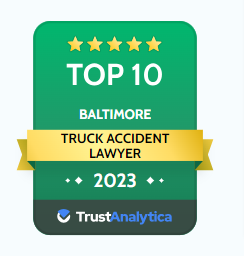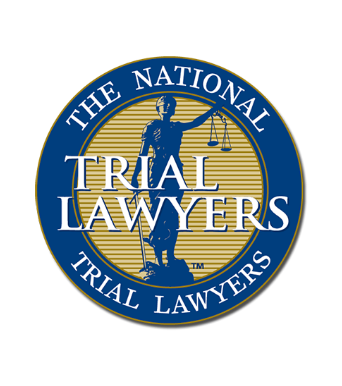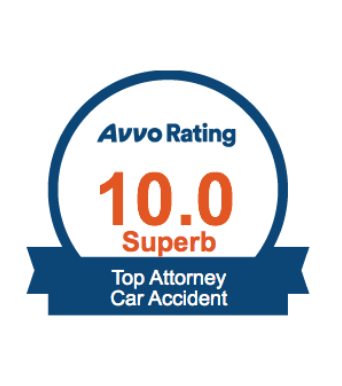Suitland, MD Pedestrian Accident Lawyer
It may sound sad, but countless pedestrians get hit by cars, buses, trucks, and other motor vehicles every day. Because vehicles are much bigger and heavier than pedestrians, the shock of getting impacted by a car or other vehicle can lead to pedestrians suffering extremely serious injuries like fractures, traumatic brain injuries, and internal bleeding. The treatment for such injuries can take a long time and cost hundreds of thousands of dollars. Worse still, victims of pedestrian accidents frequently cannot make total physical recoveries due to the nature of the injuries they received. They may have chronic pain or reduced mobility for the rest of their lives.
If you were negligently injured while just going through your day, we can help. Our firm takes personal injury cases very seriously, so we will fight hard for you to get the financial compensation you deserve after you are hurt in a pedestrian accident. We can gather evidence, talk to opposing lawyers and adverse parties, and argue for you in court to ensure that justice is done for you after you get hurt.
To have our driven pedestrian accident attorneys go over your case for free, call Rice, Murtha & Psoras by dialing (410) 694-7291.
Injuries to Pedestrians in Suitland, MD
Pedestrians can suffer incredibly serious injuries when they are hit by motor vehicles. People walking down the street or on a sidewalk do not have airbags, crumple zones, and roll bars to protect them from the impact of an oncoming vehicle. Even a car moving at a low speed can send someone to the hospital if they get struck by it. Some of the injuries you can sue for include:
Broken Bones
Broken bones are common in pedestrian accidents, especially in the lower body because that is where cars are most likely to hit someone. Broken pelvises, ribs, arms, and legs can be extremely painful and will almost certainly require a cast, splint, or another method of immobilizing the affected area while it heals.
Traumatic Brain Injuries
A traumatic brain injury (TBI) is the result of a forceful impact to the head that damages the brain. The TBI most people are familiar with is a “mild” TBI – more commonly called a concussion. Even though concussions are described as “mild,” they are anything but. You can suffer memory loss, mood swings, and hypersensitivity to light and sound as a result of a mild TBI. More serious traumatic brain injuries have more serious consequences. You could become partially or fully paralyzed, lose significant cognitive function, or have other health complications that may lead to death.
Bruising
Bruising is caused by blunt trauma breaking blood vessels under the skin. While most bruising may heal on its own, severe bruising that does not go away – especially if it is over a large area – can indicate something much more serious like internal bleeding that needs immediate medical attention.
What Compensation Can I Get in a Pedestrian Accident Claim in Suitland, MD?
When you take a case to civil court, you do so in order to get financial compensation from the defendant. These “damages” are meant to put the plaintiff back in the financial and physical situation they were in prior to getting hurt. However, the nature of a plaintiff’s injuries often does not make it possible to “undo” a physical condition, so additional financial compensation is used to make up for that fact. In civil claims, damages can be either compensatory damages or punitive damages.
Compensatory Damages
Compensatory damages will likely make up the bulk of what you ask for in your claim. Compensatory damages are meant to get the plaintiff back to where they were before they got hurt and can be broken down further into economic or non-economic damages.
Economic Damages
These damages come from things that can have their value easily displayed related to non-economic damages. Items that would fall under this category include your medical expenses, any property damages you may have suffered, and lost income you could have earned but for the fact that you were recovering from your injuries. You can use evidence like invoices, bills, and your salary to support assertions that you should be awarded a certain amount in economic damages.
Non-Economic Damages
Non-economic damages, on the other hand, are less concrete than their counterpart. Items you request damages for that fall under this category include pain and suffering, mental anguish, and emotional distress. So, while you may get economic damages for the cost of pain management medication and physical therapy, you can get non-economic damage for the physical pain itself, as well as the psychological effect of going through physical therapy to try and regain the bodily functions you had before the accident.
The value of non-economic damages can be difficult to nail down because it is hard to put a value on something like “pain” or “emotional distress.” Therefore, our attorneys will need to work to show the court the value of these things in your claim.
Punitive Damages
In contrast to compensatory damages, punitive damages are meant to punish defendants for especially bad behavior. Not only do you have to request punitive damages in the initial filing of your claim, but you also need to show that the defendant was more than merely negligent. Under Phillip Morris Inc. v. Angeletti, you need to prove that the defendant acted with malice. Generally, this means you have to show that the defendant actually set out to hurt you.
It does not make sense to request punitive damages in every claim, so you should talk with our pedestrian accident attorneys to figure out if it makes sense in your case.
Get Started on Your Claim with Our Suitland, MD Pedestrian Accident Attorneys
Rice, Murtha & Psoras’s pedestrian accident attorneys can give free case reviews when you contact our office by dialing (410) 694-7291.













